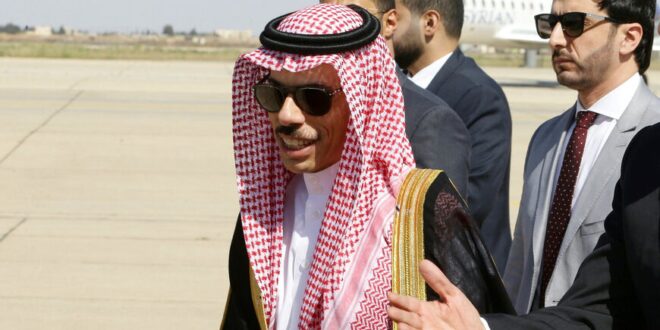The visit will be the first in years during which Saudi Arabia and Iran were locked in a bitter conflict that has been felt across the region.
Saudi Arabia’s Foreign Minister Prince Faisal bin Farhan will head to Tehran on Saturday, Iranian news outlets reported, in a historic visit after years of estrangement.
Prince Faisal is expected to hold talks with senior Iranian officials, according to Iran’s semi official news agency Tasnim. It was not immediately clear which officials the top diplomat will meet.
The Iranian Foreign Ministry revealed the planned visit earlier this week. In a press conference on Monday, spokesperson Nasser Kanaani said the Saudi official will take part in the reopening of the Saudi Embassy in the Iranian capital.
Riyadh has yet to comment on the reports.
The visit comes after the two countries reached a landmark deal in March brokered by China to restore ties. Since then, the former regional foes have engaged in a whirlwind of diplomacy to end their dispute and advance economic relations.
Earlier this month, Iran officially reopened its diplomatic mission in Riyadh. The embassy had been closed since 2016, when Saudi Arabia ordered Iranian diplomats to leave the kingdom in response to a group of protesters storming the Saudi Embassy in Tehran to condemn the execution of a Shiite cleric by Saudi authorities.
The reopening came days after the Saudi and Iranian foreign ministers met in South Africa on the sidelines of a meeting of the BRICS group comprising Brazil, Russia, India, China and South Africa on June 2. Faisal and Minister Hossein Amir-Abdollahian discussed the latest developments in the Saudi-Iranian relations, the Iranian Foreign Ministry reported, adding that the Saudi top diplomat said he would visit Tehran soon.
In April, the two officials met in Beijing in the first official gathering between the countries’ top diplomats in more than seven years. The decades-old Saudi-Iranian feud, fueled by a struggle over regional dominance, has deeply divided the region and resulted in a series of conflicts-turned-proxy wars in several countries, including in Yemen and Syria. The rivalry has also led to instability in Lebanon and Iraq.
Although the Saudi-Iranian deal was hailed as an important step toward regional stability, some analysts do not believe there will be a quick resolution of the conflicts. “While reducing the intensity of regional competition may help redirect political energy to the core internal conflicts, the prospect of swift solutions remains slim,” the International Crisis Group wrote in a report in April.
 Eurasia Press & News
Eurasia Press & News


